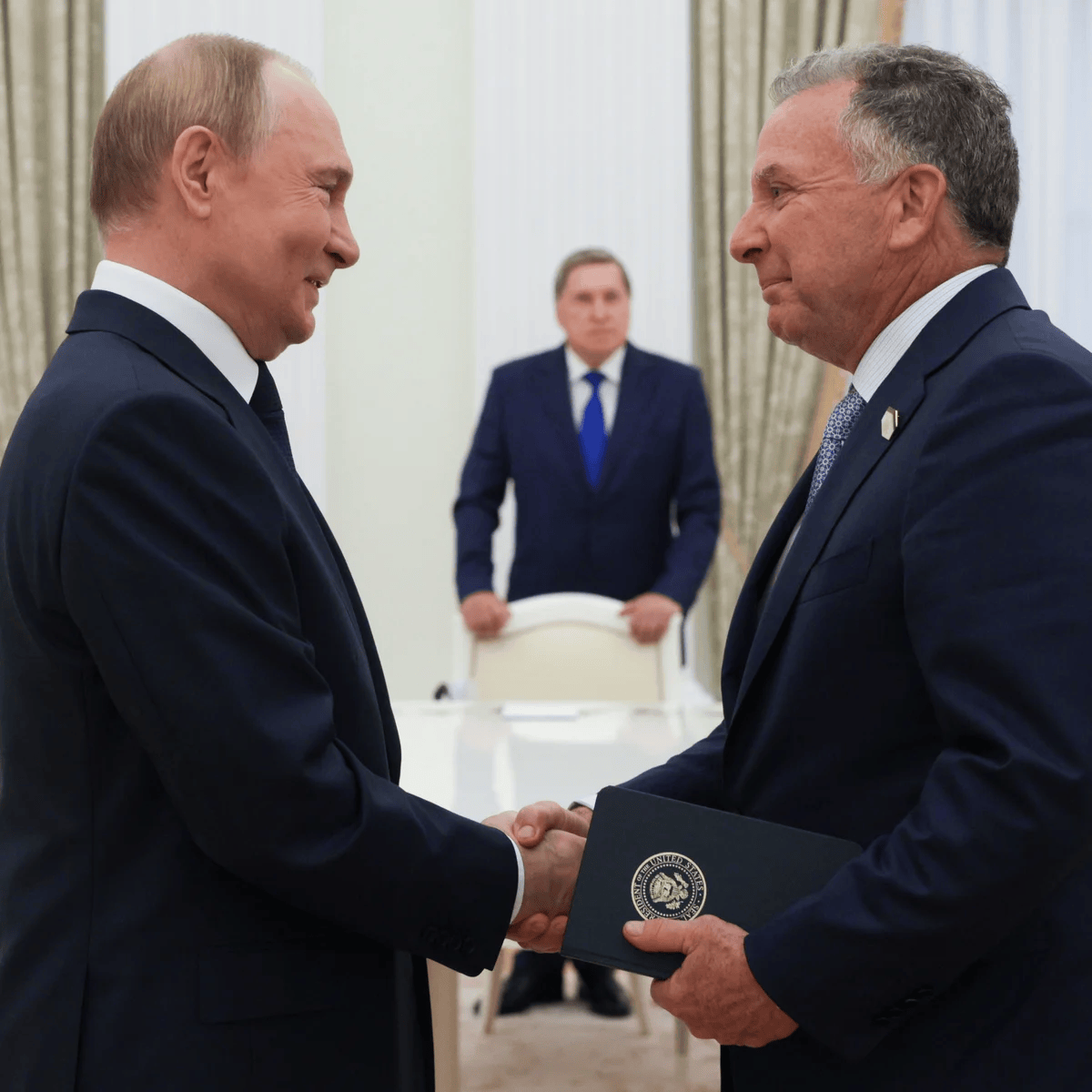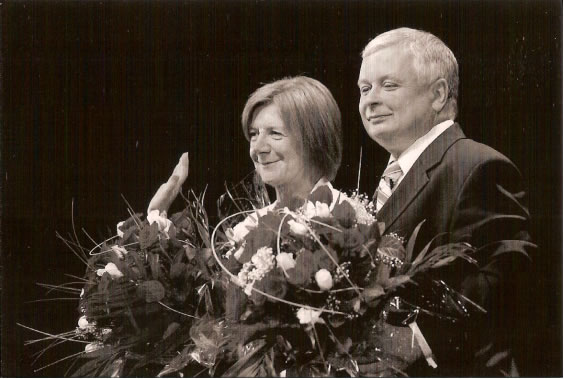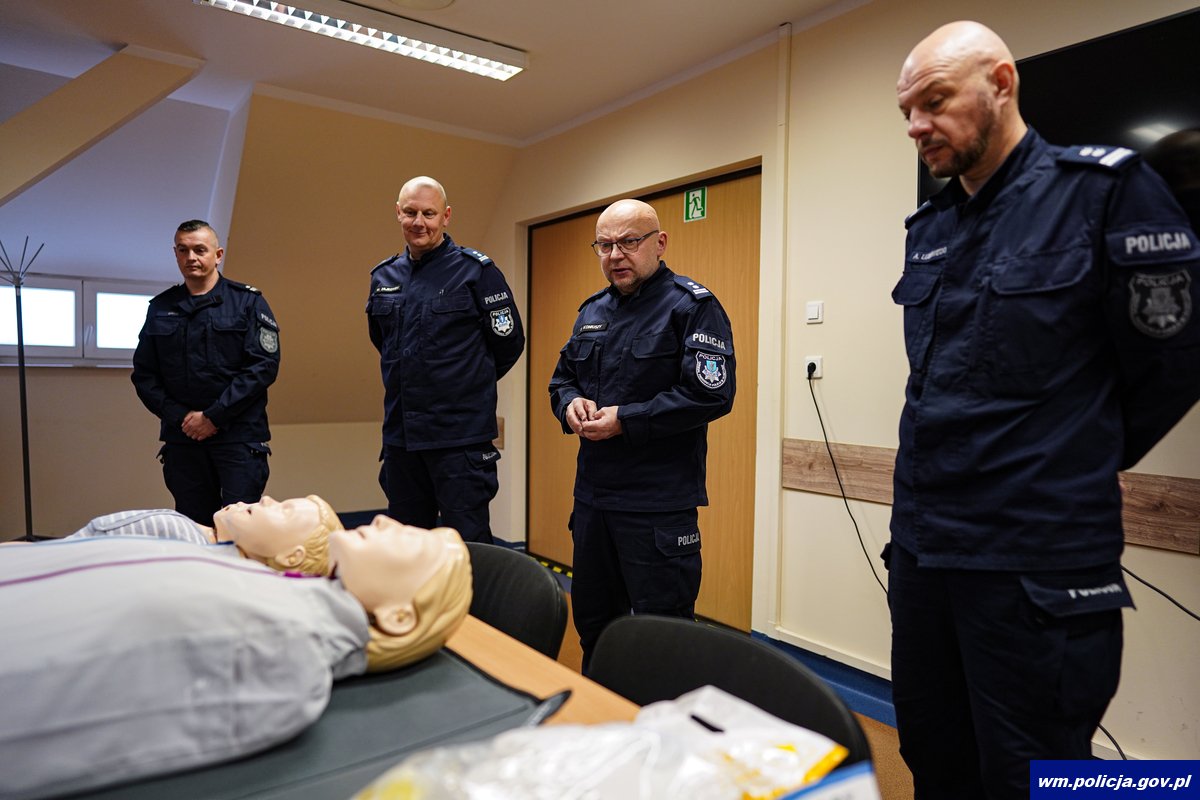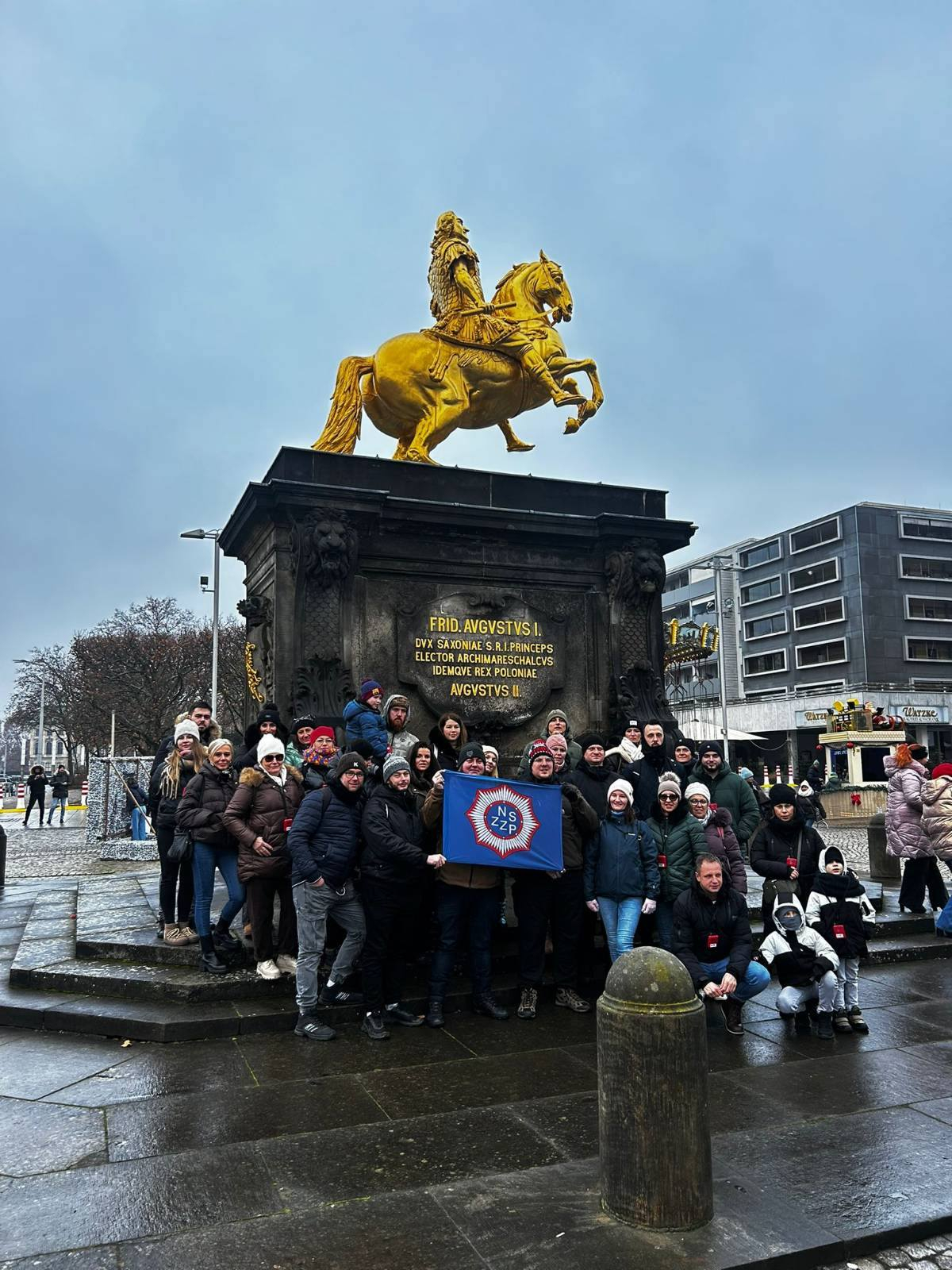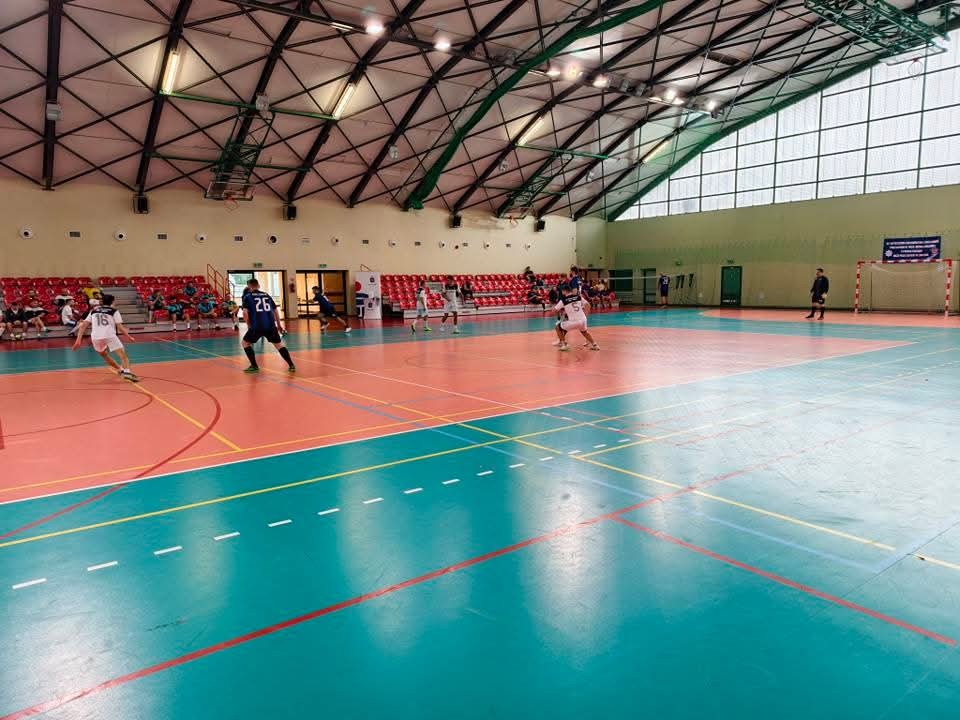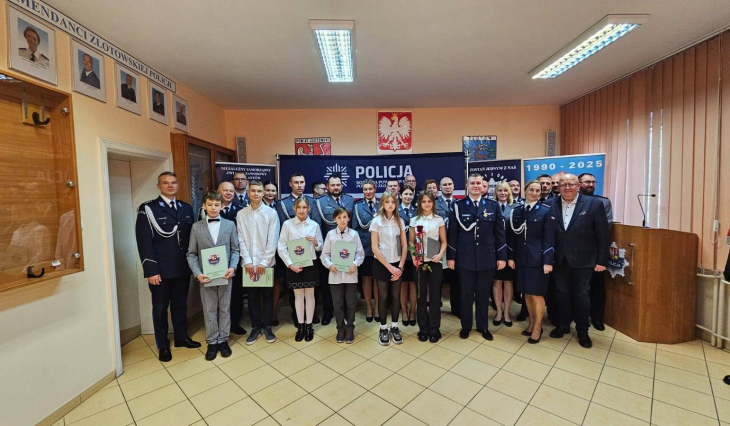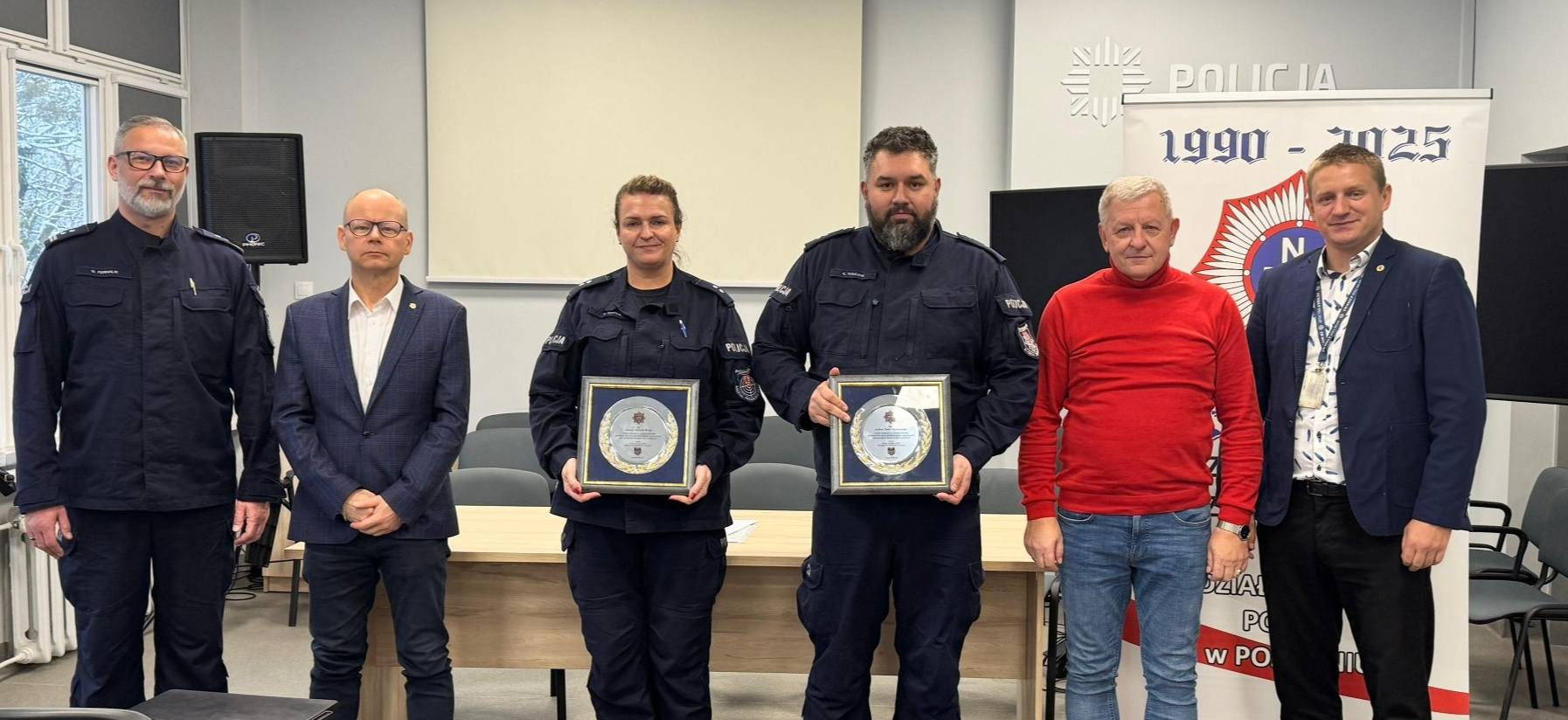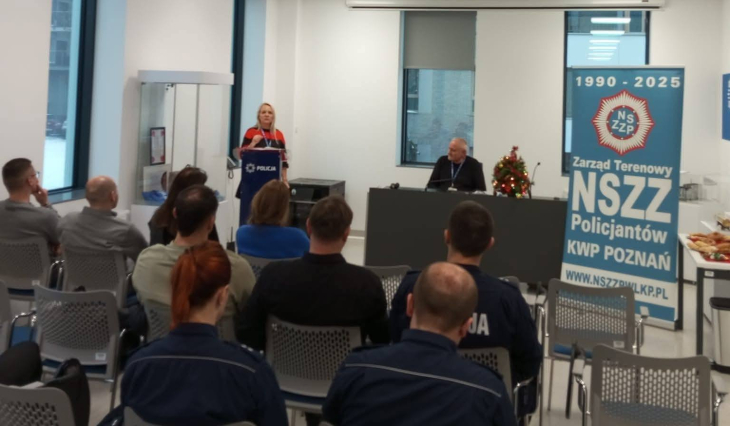It is very interesting to know precisely what the Russian or simply east Slavs have in Poland, due to the fact that I have sometimes seen articles that are reluctant to Poles, and sometimes lying and very hostile, filled with contempt and anger.
It is known that Germany was a Nazi state, and it is inactive willingly reminded and stigmatized in Russia, but I have never heard Poland call the fascist state... although descriptions of monuments in Lviv treat Poles as equal to the Nazi or russian occupier.
Does anyone survey it, have a circumstantial concept, print it?
reprint
Repressions towards Volynian Poles: Cornelius Disterhoff, DCI
04 April 2025
On Cornelius Disterhoff, Chief of the Police Investigation Office in Lutsk, and the destiny of his wife and daughters, we learned from the evidence of the criminal case from the archive in Lutsk and from the memories of Jadwiga Dąbkowska from Volyn.
Cornelius Disterhoff was arrested by NKVD officers on 17 October 1939 in his own flat in Lutsk, 7/1 Military Street (now 8th March Street). On the same day, investigator Balan conducted the first hearing.
Cornelius Disterhoff confirmed that he had served in the police force since 1918. He began as a private man, and from 1922 to 1935 he was commissioner of the investigation police in Łódź, then in Łuck, Vilnius and again in Łuck. In 1922–1925 and 1931–1934, he was head of the Lutsk Police Investigation. He retired in 1934. From 1936, he took up trade and ran a store in Lutsk on Jagiellońska Street, which the Soviets renamed Stalin Street (now Łesi Ukrainki Street). At the store, he sold sewing machines, bicycles, separators, hunting rifles, firearms and sports equipment.
During the search conducted on October 22, 2 guns, a revolver and a Parabellum, 2 small-caliber rifles, a French rifle, gunpowder, bullets, a rocket launcher, a three-gun rifle, 2 motorcycles, daggers and binoculars were secured. NKVD officers besides took 3 files of papers and over 50 photos.
During the proceeding Disterhoff stated: «As Commissioner and Chief of Police, I personally had no contact with agents. Only my subordinates had impounders». The investigator immediately accused the arrested individual of lying due to the fact that he was to personally sanction the recruitment of agents. Disterhoff confirmed that he was actually approving the whistleblower candidates, but that was a long time ago and did not remember the names. The proceeding was interrupted at this point.
A standard survey of the arrested individual reported that Cornelius Disterhoff, the boy of Krzysztof, was born in 1886 in Rejowiec, Chełm district, Lublin Voivodeship. He had a family: wife of Wanda (47), daughter of Josepha (19), Irena (17), Zofia (15), and Mirosława (13).
The next proceeding was held on October 19. The investigator identified on him the names of police officers with whom the arrested worked during various periods of work in Lutsk, officers of the territory Investigation Office in Lutsk, the police office in Kowl and individual police officers from Plains, Krzemieniec, Dubna, Horochowa and Włodzimierz Wołyński. Disterhoff one more time denied any relation with agents. The last question afraid anti-Soviet activities. The protocol states the answer that he was «Chief of the police office of the Volynian Voivodeship in the fascist apparatus of the Polish state», “he did the will of the bourgeoisie” and “he fought the revolutionary movement of the working class and peasantry and the communist movement”.
In the minutes of the proceeding of 21 October, investigator Balan noted Disterhoff's evidence that he allegedly recruited 4 people personally in 1938 to work in the “two” or 2nd branch of the General Staff. Arrested, he worked with officers of the Information Office “Two” by Stanisław Graf and Romanowski.
Minutes of the proceeding of 21 October 1939.
During subsequent interrogations, NKVD officers attempted to get further information, but the arrested admitted nothing more. Disterhoff claimed that he did not know what peculiar data the recruited people were getting due to the fact that he did not cooperate straight with them and otherwise had no another contact with the “two”.
Testimony of witnesses, deputy chief of the Volynski Provincial safety Department Stefan Wasilewski and economical worker of the provincial police Michał Saniusz-Kuroczycki, brought nothing crucial to the case of Cornelius Disterhoff.
In early January 1940, Cornelius Disterhoff was formally accused of «working as a superintendent on the board of the Volyn provincial police as head of the Bureau of Investigation, where, given the nature of his work, he was looking for persons with revolutionary views and as head of the region investigative departments with the aid of a vast network of agents and provocators, he did a direct occupation aimed at crushing communist organizations in the Volyn Voivodeship».
Then, according to documents, Cornelius Disterhoff spent a full year in prison in Lutsk and in January 1941 the case was transferred to Kiev, to the 1st NKVD peculiar Branch of the Ukrainian SRR.
On 29 January 1941, the prosecutor for extraordinary cases of the Ukrainian Public Prosecutor's Office SRR in Kiev Rybachenko wrote in his order: «In 1918–1934, the suspect Cornelius Disterhoff served in the police, holding liable positions of commissioner and chief of police in Lutsk and another localities. Since 1936, while retired, Disterhoff has engaged in trade and working with Stanisław Graf, an worker of the Information Office of the Lublin Military District, on his command he recruited for secret work for the Information Office of residents of the Łuck area, to which he admitted».
The case was referred to the peculiar College of the USSR.
According to the extract from Protocol No 35 of 29 March 1941, Cornelius Disterhoff was placed in a corrective labour camp for 8 years, beginning on 17 October 1939.
The prisoner was sent to the Karlag for punishment.
According to the order of the Volynski Oblast Prosecutor's Office of 2 June 1989, Cornelius Disterhoff was rehabilitated. His next destiny is unknown to us.
In the criminal case of Cornelius Disterhoff there are besides respective letters of correspondence between his daughter Mirosława, a resident of Lviv, and the safety Service Board of Ukraine in the Volyn region. The letter is dated 20 May 1994. It reads: «The household has known nothing about the destiny of the father since his arrest. I ask you to tell me when, where and for what reason my father died, and what charges he was charged with and what conviction he received and where he was punished. delight send copies of papers permitted by law, his photographs and another memorabilia, if they have been preserved on the case».
In Ms Mirosław's reply, she received a copy of her father's rehabilitation certificate, and was besides informed that there was no further information about her father's destiny in the case, and there were no papers or photographs of interest to her.
Neither have we been able to find Cornelius Disterhoff's destiny after his arrest. We don't really know if he survived in prison or even made it to camp.
This gap is partially filled with memories of Jadwiga Dąbkowska (1920–2012), who spent her childhood and youth in Volyn. They were published on the website wolynskie.pl.
These highly valuable memories are mainly devoted to the events of planet War II. The author describes her experiences, relationships with people, everyday life – in short, this is simply a look at war through the eyes of a civilian individual who, contrary to his will, found himself in a vortex of historical events. Memoirs are full of tiny and yet striking details, which inevitably vanish as shortly as we start looking at the war not from the position of a direct associate of events, but an observer. The value of Dabkowska's memories lies precisely in the wealth of individual observations and unique details, which are visible only “from the inside”.
One of the themes of Dabkowska's writings is about the hero of our essay and the destiny of his family. The author starts her communicative with an accidental gathering at the railway station in Lublin with her mother-in-law Kornel Disterhoff (in her memories she uses the name Kornel – auto.) in May 1945. Below we present a fragment of Jadwiga Dąbkowska's memories in its entirety, without abbreviations.
***
I last saw this household at the railway station, most likely in October 1939, erstwhile mother, grandma and 4 daughters (my friends) were leaving with the German Commission for the Reich. I led them away, we were very close, but if it were not for their father's attitude, Mr.Kornel, I surely would not want to keep this relationship – after all, utilizing the protection of the Germans and accepting their citizenship, they would willingly take sides with the enemy. But Mr. Disterhoff was a strong man, and despite his German surname (the household from which he came was from his grandfather's great-grandfather in Vilnius), he was the most sincere patriot, which he expressed by his actions.
The mother-in-law named Kleidienst came from a German family, her household surviving in Radom had any facilities for the leather industry. Daughters were raised in Polish spirit, and since it was customary for their parent to inherit religion, they were Protestants. Well, that's the case in mixed families. erstwhile there is peace, it does not bother anyone, but war manipulates individual life depending on the situation.
And it was there at the railway station in Lutsk that we had the last talks, of course, in Polish. The Germans strolled along standing with bags, awaiting transport. respective of them approached us, and then the mother-in-law made me go home, and the girls told me not to talk “in this pig’s Polish language”. Irka ran to me and apologized for her grandmother: «I will always be Polish, like a father». I quit.
And now this German woman, who was looking for Nazi protectors, abruptly found herself in specified a situation: lonely, helpless distant from the Reich and distant from Lutsk. What destiny brought her here? For a moment, I hesitated; she outweighed mercy.
I approached her by hand: «Do you admit me? I'm Figa (that's what I was called), I'm a friend of your granddaughter's. Do you remember? I'm from Lutsk. Tell me what happens to girls».
She watched me for a long time, and I realized that fear wouldn't let her talk. She tried to deny it, but I didn't give up. Hemorrhaging, and constantly turning her head, she yet summarized the destiny of her family.
The parent of the girls, along with them, was immediately sent to work in an ammunition factory, somewhere under Berlin. She stayed at home, which means 1 area assigned to them by the town authorities.
Then the oldest of them, Judith (in the criminal case file was recorded as Joseph – a car), my peer, after completing a fast German course, was sent to a camp in Majdanek as a “dolmescherka”, or translator. So she witnessed many tragedies. She was active in interrogations of abused prisoners of the camp. How was she? Did she kill her interior part of our nation? Judith was killed during the action – guerrillas tried to get prisoners transported from the castle in Lublin. The German escort and the translator were killed. That was the end of it.
The second, Irka, whom I liked best, became a paramedic at a military infirmary after training. 2 more sisters worked with their parent at the factory. They survived all the terrible raids. At the end of the war, erstwhile capturing Berlin, they left their erstwhile whereabouts and began to enter east hoping that they could get back to Łuck, their own home.
They didn't anticipate the situation. On the way, they were recognized by Polish women working in the same mill – and were taken care of more closely as German Russian soldiers. They were taken to any police station, raped and cut to the last hair. They were then transferred to the post of Polish military authorities. The minute I met my grandmother, they were in prison. I don't know how far they've been harmful to the independency of our homeland, and how far they've been victims of unrigid emotions.
I had no way to aid that old woman. I was homeless myself. I gave her 2 buns that Marys gave me. How much poverty, hurt and humiliation this female went through – so not humanly, without dignity, she wanted to kiss my hands... for a fewer rolls... This is war and its consequences.
Mr. Kornel Disterhoff occupied his dignity with death.
I will return to the days before the Red Army entered Volyn in 1939.
During the expanding bombings for respite, wanting to get any hours of sleep, we went out of town to the nearest peasant buildings (then we were not murdered, of course, but for robberies on dispersed troops – organized by Ukrainian bands). We spent 1 night with Mr and Mrs Disterhoff in a immense barn full of straw. It was a quiet night – only the rustling of chasing mice awakened some. There were 20 of us.
At 1 point, the barn door creaked in the dark night, and individual with a flashlight began to shine on the sleeping faces: «Is there a Disterhoff household here?»
Of course, our neighbors woke up, they didn't know by voice who was looking for them, and they mistrustfully asked, “What is the matter?”
«This is your cousin Kleidienst from Radom, delight come outside, the conversation hates the delay».
Irka – 1 of the daughters – went out with her parents. After any time in a large secret, she told me that her uncle from Radom had flown in any kind of an avione from the areas already occupied by the Germans, flew in to get his father to get him out of the Bug, due to the fact that in 2 days the russian army will enter here. due to Mr Disterhoff's anti-communist work, he will be imprisoned first. They've got to get out of the van under cover of night.
The Disterhoff household began packing their bags and besides quietly advised us to return home immediately. Irka said his uncle assured us that from now on Germany would halt bombings due to the fact that there was an agreement between Stalin and Hitler. There will be an agreed division of Poland. Again, Poland's case is lost...
We got to our homes. In fact there was silence, we could have a quiet breakfast – doctors were mobilized to the front service. There were six of them. A military infirmary was now located close our home in the pre-war Krawiecki advanced School, filled with wounded victims of fresh bombings.
Of course, we did not hesitate to tell them that secret. Yes, it's over – you gotta go to your own, to the west as shortly as possible, or get to Romania and then... But they could not leave the injured until the last minute, but they asked us to supply them with old civilian clothes to aid them escape from “the liberators”. Daddy and brother's clothes, who were on the front, went for this purpose, and besides, we contacted colleagues from our scout team, taking part in the service of civilian defence of the Country, and the fundraiser began.
What a surprise it was to see 4 daughters passing through the wire barrier to Mr. Disterhoff's airport. The full bunch stopped at our poor, miserable, torn-up fighter planes that were sticking up with stumps of broken wings. There were 22 of them. Of course, I ran to them.
Mr. Disterhoff cut a white-red razor board out of 1 wing. He cut it into 4 long stripes and handed it to each of the daughters, saying, «Keep it safe throughout the war. We won't be able to have our white and red flag openly for long. There are very hard times for Poland. Remember that you are Polish!».
The thrills ran on my back. They turned home sad. Irka, apart from them, said that her father decided not to flee to the Germans, that for him, as well as the Soviets, the Germans are enemies too. And that he fought in legions he never embezzled his homeland. Apparently, the weeping wife afraid about his destiny and the household explained that honor does not let him to eat Polish bread for 19 years now in request of leaving Homeland. We never thought Mr. Kornel Disterhoff was the Man and Patriot of this measure. In the morning, right after entering, he was arrested. He died without a trace.
***
The criminal cases of Ukrainian citizens of the SRR repressed by russian authorities can be consulted on the website of the Archives of the State Volynski Oblast.
(To be continued).
Anatol Oil
In the main picture: An extract from the protocol with a judgement against Cornelius Disterhoff
Repressions: Cornelius Disterhoff Monitor Volynski


